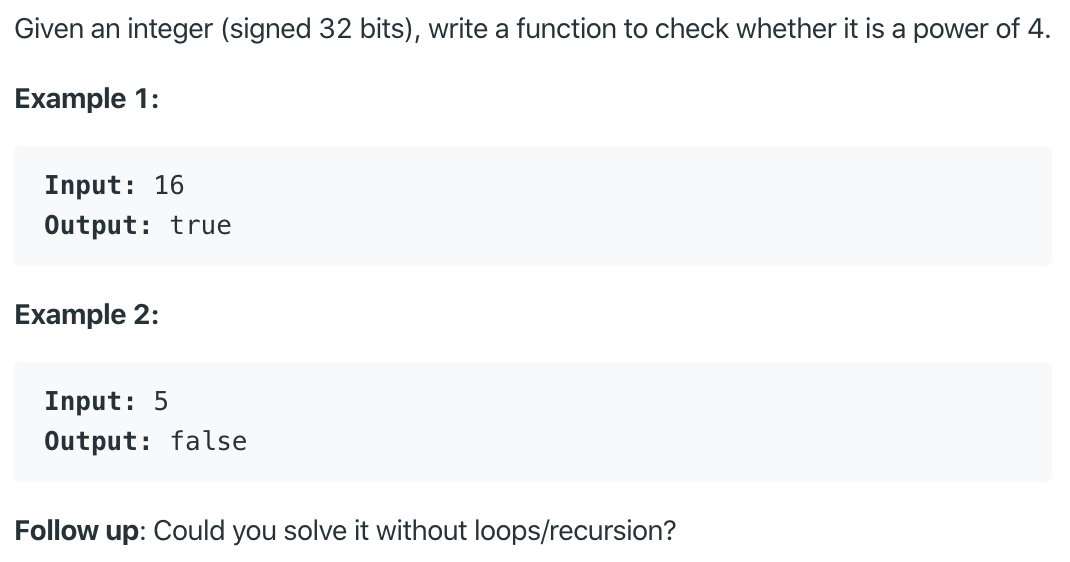Power of Four

# Solution
# Vanilla Iteration
Could also do in recursion instead of while loop but omitted.
We could either increase or decrease w/ time and constant space.
# Increase
We could increase acc till it's equal to or larger than n.
def isPowerOfFour(self, n: int) -> bool:
if n < 1:
return False
elif n == 1:
return True
acc = 1
while acc < n:
acc *= 4
if acc == n:
return True
return False
2
3
4
5
6
7
8
9
10
11
# Decrease
We could decrease n till it's equal to or smaller than 1.
def isPowerOfFour(self, n: int) -> bool:
if n < 1:
return False
while n>1:
n /= 2
return n == 1
2
3
4
5
6
# Follow Up
Could you solve it without loops/recursion?
# Math
If n is a power of 4: , then . So we simply check if is even.
Complexity
time:
space:
def isPowerOfFour(self, n: int) -> bool:
return n > 0 and math.log2(n) % 2 == 0
2
# Bit Manipulation
First check if n is a power of 2 (necessary condition). Further, n would have 1 at an even position, such as 0001 or 0100. So n & 1010...10 would yield a 0. Note that 32-bit 1010...10 would be aaaaaaaa in hex.
Complexity
time:
space:
def isPowerOfFour(self, n: int) -> bool:
return n > 0 and n & (n-1) == 0 and n & 0xaaaaaaaa == 0
2
or instead of 0xaaaaaaaa, n & 0x55555555 would be non-zero:
def isPowerOfFour(self, n: int) -> bool:
return n > 0 and !(n & (n-1)) and (n & 0x55555555)
2
# Modular Arithmatic
Also check if n is a power of 2.
consider both cases and , and to compute modulo after division by 3:
def isPowerOfFour(self, n: int) -> bool:
return n > 0 and n & (n - 1) == 0 and n % 3 == 1
2
# Integer Limitation
In __init__ method calculate all powers of 4 smaller than .
class Solution:
def __init__(self):
max_int = 2**31-1
self.powerOfFour = [1,4]
while self.powerOfFour[-1] < max_int/4:
self.powerOfFour.append(self.powerOfFour[-1]*4)
def isPowerOfFour(self, n: int) -> bool:
return n > 0 and n in self.powerOfFour
2
3
4
5
6
7
8
9